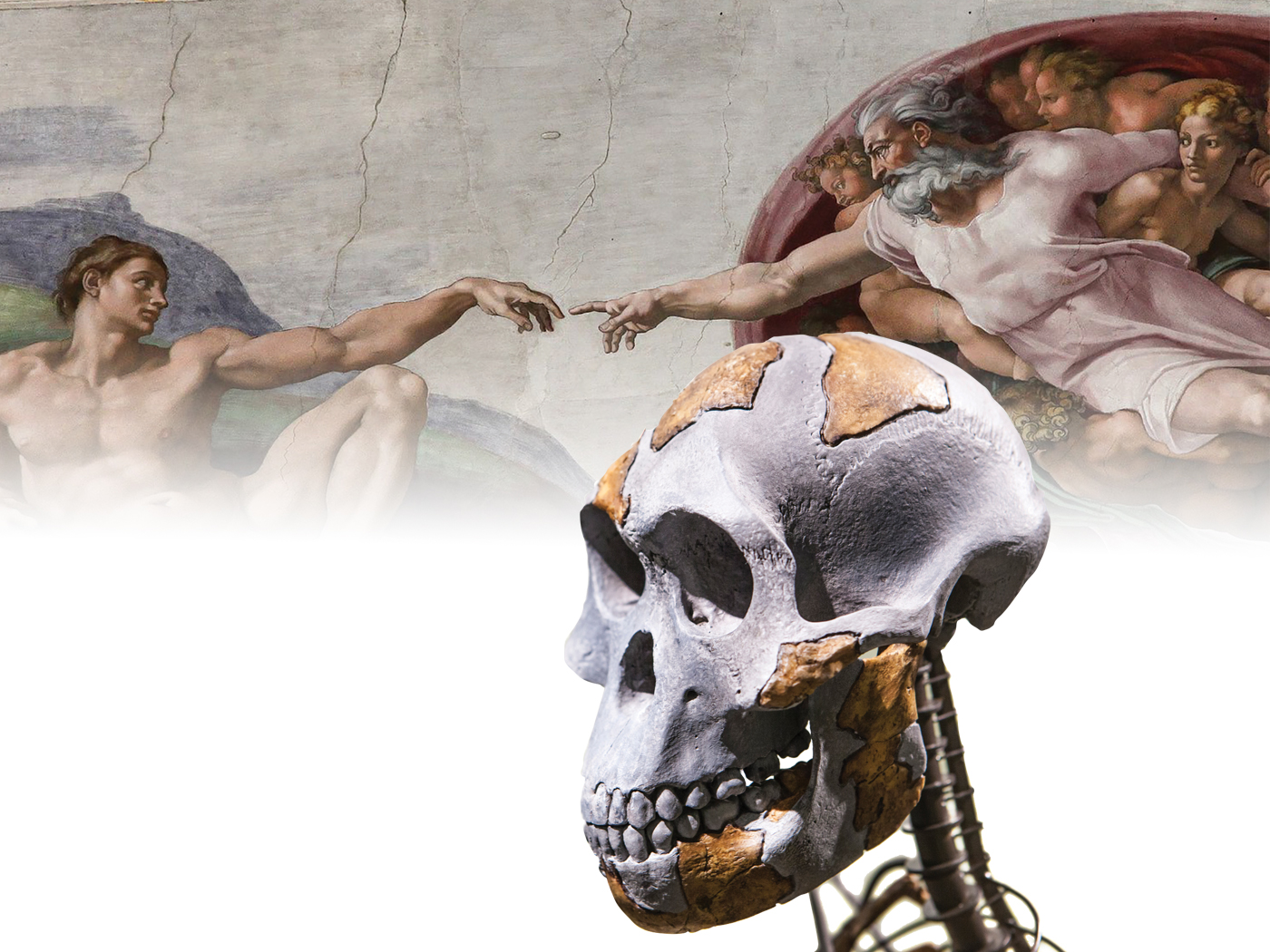Search Tools
New Defender's Study Bible Notes
Introduction to Jonah
Jonah is undoubtedly the most familiar of the minor prophets, because of the famous story of Jonah and the whale. Also because of this story involving such a unique miracle, Jonah is the object of more skepticism than any prophet except Daniel. Nevertheless the book has been fully accepted as canonical and historical by both Jews and Christians until modern times.
Jonah (his name means “Dove”) was a prophet of Israel, rather early in the line of writing prophets. His home was in Gath-sepher, in Galilee, in the land of Zebulun, and he was identified as a real prophet in Israel, evidently during the reign of Jeroboam II (note II Kings 14:23,25). There is thus no warrant for considering him as merely a fictional character in a legendary tale, as many modern scholars have assumed.
The conclusive evidence of Jonah’s historicity, of course, is that he was so identified by the Lord Jesus Christ Himself (Matthew 12:40), who, like Jonah, was a prophet from Galilee. Even more significantly, Christ accepted the reality of Jonah’s miraculous experience in the great fish, even making it a prophetic type of His own coming death and resurrection. Finally, He accepted the almost equally amazing miracle of the repentance of Nineveh under Jonah’s preaching (Matthew 12:41; Luke 11:29-30,32).
In connection with the latter, it should be emphasized that Nineveh was the great capital of Assyria, the empire that would later invade Israel and carry its people off into captivity. The Assyrians had the reputation of being the most cruel and licentious people of any of the great nations of antiquity, so such a national repentance under the preaching of an Israelite prophet was a most amazing phenomenon. Yet its authenticity is confirmed not only by Jonah, but by Christ Himself!
This national conversion lasted only about a generation or so, for Assyria and Nineveh later once again incurred God’s wrath for their wickedness, and the prophet Nahum eventually pronounced their coming destruction (Nahum 3:1,7).
It is striking to note that, with most of the pre-exilic prophets ministering in Israel and Judah, this divinely directed ministry of Jonah was to a great heathen nation. Although Israel was God’s chosen nation, He has never abandoned His concern for all nations, even a nation like Assyria.
1:1 Jonah. Jonah was not a mythical personage, as many critics have alleged, but a real prophet, who prophesied in Israel during the reign of Jeroboam II (see II Kings 14:23,25).
1:2 Nineveh. Nineveh was, indeed, the greatest Assyrian city, founded by Nimrod (Genesis 10:8-12). Soon after Jonah’s time it became the capital of Assyria, the world’s greatest empire. It was situated by the Tigris river, on the east side, near the modern city of Mosul, Iraq, and archaeologists have been excavating its remains for over a hundred years now.
1:2 wickedness. The wickedness and cruelty of the Assyrians was the scandal of the ancient world. After a brief revival following Jonah’s preaching (Jonah 3:5), the nation became even worse later on, and Nahum then prophesied its utter destruction Nahum 1:1; 3:7).
1:3 Tarshish. Tarshish was a distant seaport, so far away that a round trip from Israel apparently took three years (I Kings 10:22). The location of Tarshish is commonly thought to have been in either Spain or Great Britain, but the exotic nature of cargoes from there, carried in the ships of the Phoenician king Hiram of Tyre (II Chronicles 9:21), might indicate a location either in central Africa or east Asia. More evidence is accumulating that the Phoenicians may have sailed all over the world.
1:4 great wind. This was the first of at least seven providential miracles recorded by Jonah (that is, miracles requiring providential timing of natural phenomena, rather than special creation).
1:6 call upon thy God. The mariners were evidently recruits from various nations, for each had his own “god” (Jonah 1:5). Yet they somehow sensed, perhaps by his calm demeanor, that Jonah’s God was more powerful than theirs. They were no doubt accustomed to storms at sea, but this one was so uniquely severe that they had to assume there was a special cause.
1:7 cast lots. The casting of lots is normally believed to be a random selection process whereas it is commonly said that “God does not throw dice.” The fact is, however, that God, when He so wills, can overrule and control even so-called chance events. In this case, Jonah elected to go to Tarshish, but God wanted him at Nineveh, so He provided an alternate means of transportation that would assure the intended destination!
1:9 Hebrew. The name “Hebrew” could actually apply to any of the descendants of Eber (Genesis 10:25; 11:16-19). Perhaps this was the sense in which Jonah expected this motley group to understand it. The term actually appears only fourteen times (this being the last) in the Old Testament.
1:9 God of heaven. Unlike the pagan polytheists he was traveling with, Jonah was a creationist, and his God was the only true God. His God had created the universe, including all the false gods (actually fallen angels and demons now in the Satanic hosts) worshiped by the pagan world.
1:14 as it pleased thee. These polytheistic foreigners, experienced seamen as they were, knew enough about violent storms at sea to know this unique storm had been sent by God—the God of Jonah.
1:16 sacrifice unto the LORD. It is significant that, at least at this time in pre-Christian history, these pagan sailors so quickly acknowledged the true God. Even though they followed a variety of gods, they somehow had retained such an intuitive sense of the one Creator God that they could recognize His power when it was manifested.
1:17 prepared. The Lord “prepared” a fish, a gourd, a worm, and a wind (Jonah 1:17; 4:6,7,8), in accomplishing His will and proclaiming His Word through Jonah.
1:17 great fish. This “great fish” was not necessarily a whale, although there are some whales with the ability to swallow a man whole. It could have been, for example, a large whale-shark, or possibly some now-extinct marine reptile (the word translated “whale” in Matthew 12:40 could better be rendered “sea-monster”). It may even have been—for all we know to the contrary—a special marine animal created by God just for this purpose. The whole event is recorded as a miracle, and was so quoted by Christ (Matthew 12:39-40), so it is a mistake to attempt to explain it as a purely natural phenomenon. There have been unconfirmed reports of men in recent times who have been swallowed by whales or whale-sharks—even some who survived such an experience—but these, even if authentic, are irrelevant. Jonah’s experience was clearly, and altogether, a miracle.
1:17 three days and three nights. The Lord Jesus confirmed the historicity of both Jonah and his experience in the “whale” by citing it as a type of His own coming death, burial and resurrection (Matthew 12:39-40). In fact, these words of Christ probably indicate that Jonah, like Jesus, actually died and was then restored from death.






